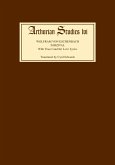Investigates the relationship of early twentieth-century German literature and thought with contemporary cognitive studies and posits a new theory of modernism.
How do we habituate ourselves to environments that are not yet, or no longer, familiar? What is at stake in adapting our behavior to new or changed situations? The present study explores these questions by bringing German literature and thought of the early twentieth century - a time of immense social and material change in Europe - into dialogue with contemporary research in embodied cognition. In six close readings of texts by Vicki Baum, Walter Benjamin, Alfred Döblin, Martin Heidegger, Georg Kaiser, and Rainer Maria Rilke, it brings into relief German modernism's concerns over how we adapt our behavior to environments that are new, changed, and/or changing. Rather than emphasizing the alienation and isolation that these texts investigate regarding the modern urban experience, as much of the research on literary modernism has traditionally done, Meindert Peters's book draws out the more dynamic moments of mastery, responsiveness, and cooperation that underpin habituation. Moreover, it extends these questions of habituation to the function of literature itself by showing how modernist forms invite engagement and participation. Habituation in German Modernism not only joins a growing body of scholarship dealing with the productive relationship between literature and cognitive studies but also posits a new theory of modernism.
How do we habituate ourselves to environments that are not yet, or no longer, familiar? What is at stake in adapting our behavior to new or changed situations? The present study explores these questions by bringing German literature and thought of the early twentieth century - a time of immense social and material change in Europe - into dialogue with contemporary research in embodied cognition. In six close readings of texts by Vicki Baum, Walter Benjamin, Alfred Döblin, Martin Heidegger, Georg Kaiser, and Rainer Maria Rilke, it brings into relief German modernism's concerns over how we adapt our behavior to environments that are new, changed, and/or changing. Rather than emphasizing the alienation and isolation that these texts investigate regarding the modern urban experience, as much of the research on literary modernism has traditionally done, Meindert Peters's book draws out the more dynamic moments of mastery, responsiveness, and cooperation that underpin habituation. Moreover, it extends these questions of habituation to the function of literature itself by showing how modernist forms invite engagement and participation. Habituation in German Modernism not only joins a growing body of scholarship dealing with the productive relationship between literature and cognitive studies but also posits a new theory of modernism.
Dieser Download kann aus rechtlichen Gründen nur mit Rechnungsadresse in A, D ausgeliefert werden.









